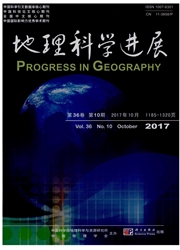

 中文摘要:
中文摘要:
光释光测年是对沉积物上一次曝光事件年代的测定。自20世纪80年代该方法提出以来,得到了越来越广泛的应用。相对于”C测年,光释光测年虽存在误差偏大的不足(一般5%~10%),但是具有以下明显优势:①其测年年限范围比前者大得多;②测年物质(石英或长石)丰富,这在干旱半干旱区的沙漠和湖泊中尤其重要,因为在这些地区很难找到可用于“C测年的有机质;③是对沉积物的直接定年;④测年事件包括曝光、受热(400℃以上)、火山、地震和晶体(方解石等)形成等。本文介绍了光释光测年的整个实验过程,包括采样、前处理、等效剂量测定、年剂量测定等,以期让有需要的地学同行了解这一方法,尤其是了解从地层或岩芯等取样的过程中应注意的事项。重点介绍单片再生剂量法(SAR)与标准生长曲线法(SGC)相结合测定等效剂量的实验方法(我们命名为SAR.SGC法)。该方法能大大提高仪器的使用效率,可节省仪器时间60%以上。通过氟硅酸溶蚀长石来提取石英的中颗粒(38—63gm)的前处理过程简便易行,获得的石英纯度高,且可以避免使用危险的氢氟酸。中国科学院青海盐湖研究所释光测年实验室近几年应用SAP,.SGC法对黄土、沙漠、湖泊、海洋、冰川、考古点等各种类型沉积物进行光释光测年,都获得了很好的结果。
 英文摘要:
英文摘要:
Since its development in the 1980s, optically stimulated luminescence(OSL) dating has been im- proved significantly. Even though the error is larger(normally 5%-10%), it has obvious advantageous over radio- carbon dating: larger dating range from decadal up to -700 ka, abundant dating materials(quartz or feldspars), dating directly the sediment, etc. The purpose of the paper is to introduce the method to those geoscientists who intend to use OSL dating for chronological control so that the sampling in the field will satisfy OSL chronolo- gists. We describe the procedures of OSL dating in the luminescence dating laboratory of Qinghai Institute of Salt Lakes, CAS, including sampling, pretreatment, equivalent dose (De) and dose rate determination. We make some suggestions for OSL sampling from strata or drilling cores. In our laboratory we combine the single ali- quot regenerative-dose(SAR) and standardised growth curve(SGC) techniques together for De determination, which we call SAR-SGC method with the advantage of reducing machine occupation time for at least 60% com- pared to that of the SAR method. The abstract of pure quartz of middle grains (38-63 ~tm) using fluorocilicic ac- id (H2SiF6) could be much easier and simpler compared to that of coarse grains(90-120 pm) and fine grains(4- 11 pm), without the use of dangerous hydrofluoric acid(HF). Our systematic investigations on the use of SAR-SGC method for different sediments(aeolian, lacustrine, marine, and glacial, etc.) have shown that the method is valid, even though some factors may result in complexity, e.g. the contamination of heavy minerals and feldspars, the thermal history of quartz grains, etc. Since 2008, we have been applying, with success, the SAR-SGC method to dating loess, desert, lacustrine, ocean, glacial, earthquake, and archaeological site sedi- ments, etc.
 同期刊论文项目
同期刊论文项目
 同项目期刊论文
同项目期刊论文
 OSL ages revealing the glacier retreat in the Dangzi valley in the eastern Tibetan Plateau during th
OSL ages revealing the glacier retreat in the Dangzi valley in the eastern Tibetan Plateau during th OSL dating of glacial sediments from the Qinghai-Tibetan Plateau and its bordering mountains: a revi
OSL dating of glacial sediments from the Qinghai-Tibetan Plateau and its bordering mountains: a revi OSL chronology and palaeoclimatic implications of aeolian sediments in the eastern Qaidam Basin of t
OSL chronology and palaeoclimatic implications of aeolian sediments in the eastern Qaidam Basin of t Luminescence dating of Suozi landslide in the Upper Yellow River of the Qinghai-Tibetan Plateau, Chi
Luminescence dating of Suozi landslide in the Upper Yellow River of the Qinghai-Tibetan Plateau, Chi Examining quartz OSL age underestimation for loess samples from Luochuan in the Chinese Loess Platea
Examining quartz OSL age underestimation for loess samples from Luochuan in the Chinese Loess Platea OSL dating of glacial sediments from the Qinghai - Tibetan Plateau and its bordering mountains : A r
OSL dating of glacial sediments from the Qinghai - Tibetan Plateau and its bordering mountains : A r Reply to comment by Zhang(2014): The Shell Bar in the Qaidam Basin: fluvial or lake deposit, and OSL
Reply to comment by Zhang(2014): The Shell Bar in the Qaidam Basin: fluvial or lake deposit, and OSL 期刊信息
期刊信息
